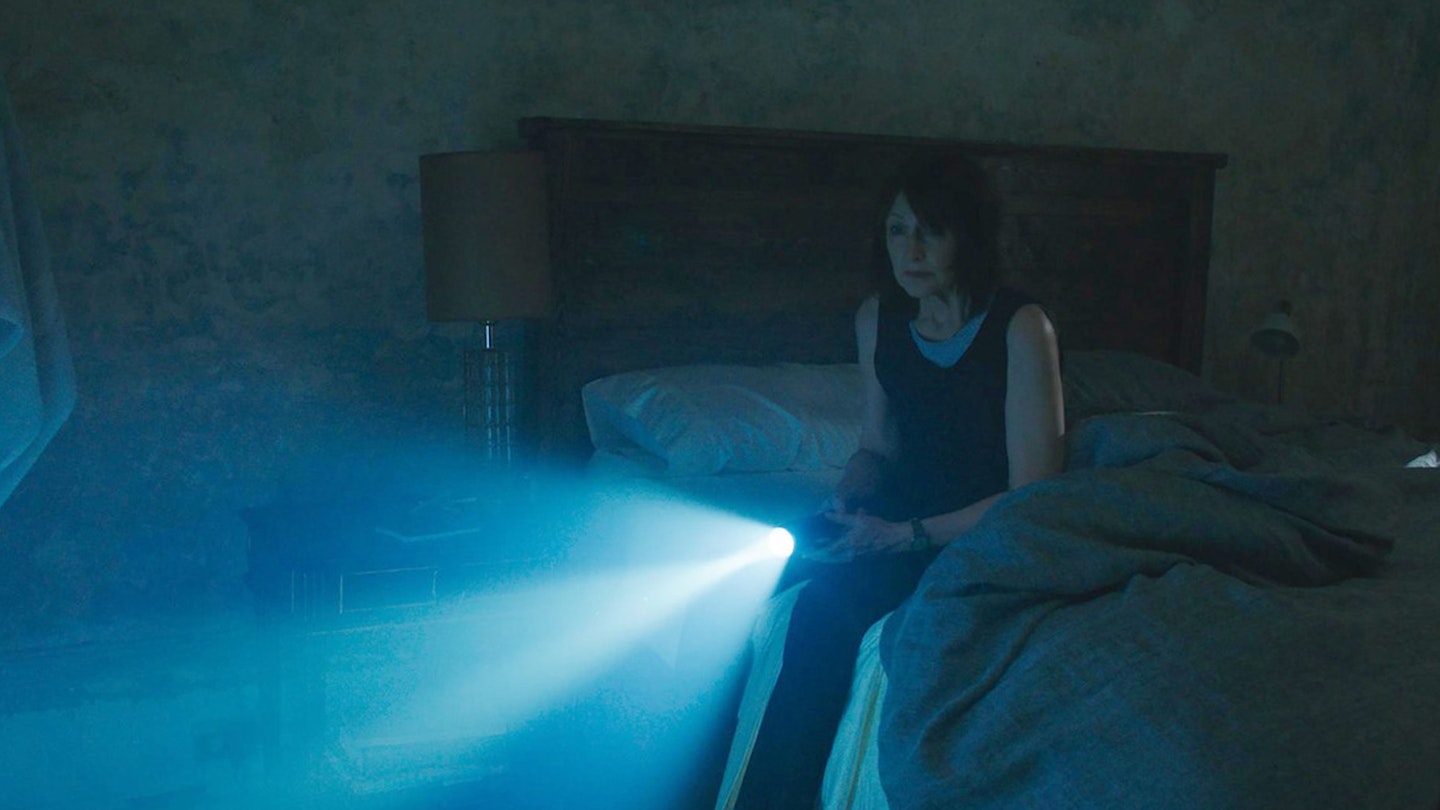Refracting light, loss and existential questioning, Carol Morley’s fourth feature, Out Of Blue, reimagines the tropes of both a detective drama and a mystical epic. Never one for a straightforward story, the director trumps her superstitious schoolgirl mystery The Falling by asking even more questions about the nature of the universe, in the context of a murder case here. It’s an admirable idea, but chaotic, ludicrous plot lines fail to raise the stakes enough to make musings on the cosmos feel within reach.
As Hoolihan, Patricia Clarkson plays a tough but not turgid detective who must navigate the trail of clues Rockwell left behind. Instead of indulging in the hard-nosed conventions of the ‘bad cop’ character, Clarkson brings surprising patience to the role, staking her claim as a serious, but remarkably sensitive contender for a new kind of ‘strong character’– female or otherwise.
A life-or-death narrative, in this case focusing on death and its aftermath, is usually capable of surviving without answering every question of empirical uncertainty — but Out Of Blue chooses to respond to every theory, only with half-hearted explanations that further confuse the film’s ambitious philosophy instead of nurturing it. Morley hops, skips and jumps over every red herring deliberately (a fraying sock, an open pot of face cream, the dark heart of a black hole), but seems to trip up on her own tangled web of theories that remain unexplained and mostly unsatisfying.
A film of endless question marks.
While her story suffers, the universe Hoolihan resides in benefits from a stylish design. Clint Mansell’s pensive score establishes a seductive atmosphere, sustaining an ethereal hum that suggests the universe is infinite, and we should be so lucky to even imagine its magnitude. It’s no far cry from the composer’s contemplative and dystopian output for Black Mirror episode “San Junipero”, except the world of Out Of Blue lives off more hot air than reality-defying love.
There’s a sense that Morley knows full well that her film is one of endless question marks, as musings about closure and multiverses indicate a deliberateness to her mystery. But the failings of Out Of Blue lie in the efforts to signpost an investigation that might transcend the genres we know and the realities we live in, without ever giving enough depth to make such big theories ring true. Watery characters lack conviction, and not even a clichéd reliance on repeated dialogue (“I screwed up… I screwed up”, Mike insists) solidifies the plausibility of these people.
Enhancing an overdone idea with aspirations as sprawling as the universe itself seems like a poetic ambition, but Morley’s fussy neo-noir ultimately reveals an incapability to build a bridge between supernatural imagination and convincing drama.
